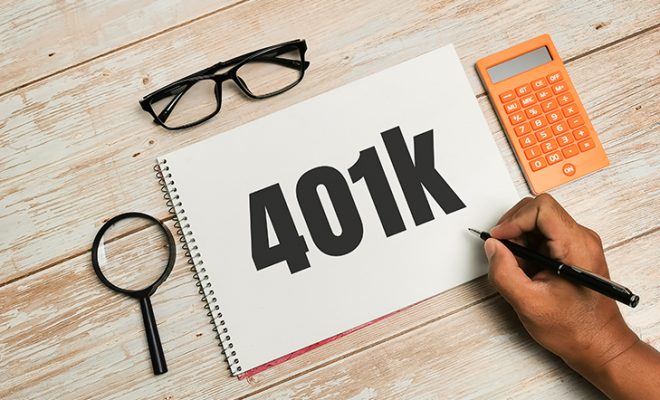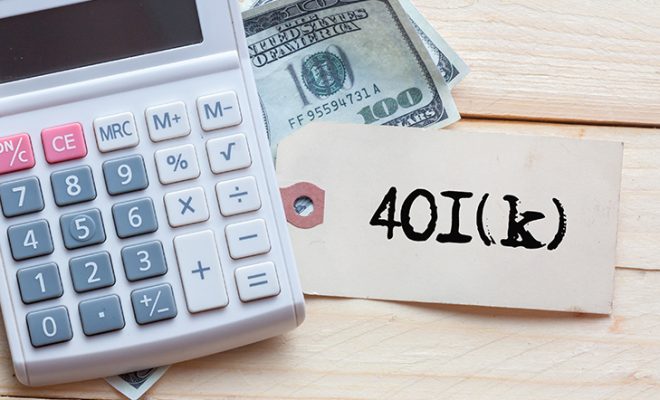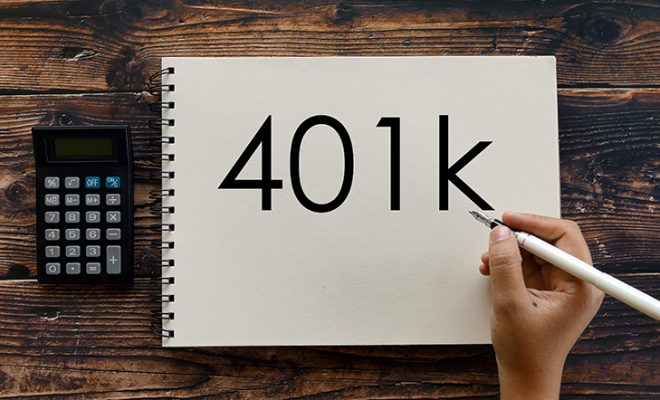How are Your 401(k) Contributions Taxed in Retirement?

Tax management is an essential part of retirement planning. Any income you earn, whether through a job or a return on investment, is typically subject to taxes. This includes withdrawals from retirement accounts like the 401(k). How much you pay in taxes on these withdrawals will depend on several factors, such as the type of account you have, your age when you start taking distributions, and the amount you withdraw. Understanding these details ahead of time can help you plan more effectively for retirement.
A financial advisor can offer guidance on how your 401(k) contributions and withdrawals will be taxed. This article will also walk you through the basics of managing your retirement income taxes.
Is retirement income taxable?
Yes, your retirement income is taxable depending on the type of investment. Workplace retirement accounts like the 401(k) are a tax-efficient way to save money for the future. However, once you start withdrawing your savings in retirement, you may be taxed on your withdrawals. There are two primary types of 401(k) accounts – Traditional and Roth. Each of these works differently and differs in terms of their 401(k) tax treatments. Here’s how:
- Traditional 401(k): With a Traditional 401(k), your contributions are made with pre-tax dollars. The money you contribute is deducted from your gross income before any tax cuts. This reduces your taxable income for that year. For example, if you earn $50,000 and contribute $2,000 to your 401(k), only $48,000 of your income is taxed in the said year. The money that is contributed to the Traditional 401(k) grows tax-deferred, and you do not owe taxes on it as it grows over time. However, when you retire and start making withdrawals, those distributions are taxed as ordinary income. This is a significant point to remember as even though your account grew tax-free, you do ultimately pay tax once you start pulling money out in retirement.
- Roth 401(k): In a Roth 401(k), your contributions are made with post-tax dollars. You have already paid taxes on the money before contributing it to your account. While you do not get an immediate tax deduction, the advantage comes when you retire. Just like a Roth Individual Retirement Account (IRA), a Roth 401(k) grows tax-free, and when you take qualified withdrawals, those distributions are not taxed at all, provided you meet the requirements. It is essential to remember that while your contributions are not subject to tax, any employer contributions to your Roth 401(k) are subject to taxation when withdrawn, as these are made with pre-tax dollars.
How are contributions to a Traditional 401(k) taxed?
At present, once you reach the age of 59.5, you can start taking distributions from your Traditional 401(k) without penalty. However, the withdrawals are still taxed at your current income tax rate. If you are in a lower tax bracket during retirement, you may pay less tax on the money than you would have during your working years. However, if you fall into a higher tax bracket, you may be subject to more tax than you paid when you were working. A key factor to consider when understanding how your 401(k) is taxed in retirement is the Required Minimum Distributions (RMDs). Once you turn 73 (as of 2024), you must begin taking RMDs from your Traditional 401(k). The Internal Revenue Service (IRS) sets a minimum amount that you must withdraw each year, and failure to take RMDs can result in a hefty 25% penalty. This can be reduced to 10% under certain circumstances if corrected in time.
For example, if you are required to withdraw $5,000 but fail to do so, you could face a penalty of 25% of $5,000, which amounts to $1,250 from the IRS. To avoid this, it is crucial to understand your RMD schedule and plan accordingly. The amount of the RMD is based on your life expectancy and the balance in your account.
How are contributions to a Roth 401(k) taxed?
Roth 401(k) withdrawal taxes are simpler than Traditional 401(k) withdrawals. Once you reach age 59.5 and your account has been open for at least five years, you can withdraw both contributions and earnings tax-free. However, if you take distributions before meeting these requirements, the earnings but not the contributions may be subject to taxes and penalties. There are exceptions to these penalties, as discussed in the next section.
It is important to note that Roth 401(k)s are not subject to RMDs during the account owner’s lifetime. However, if you inherit a Roth 401(k), RMDs will apply to the beneficiary.
Are early withdrawals from a 401(k) taxed?
The IRS encourages retirement accounts to be used for retirement and not your short-term financial needs. So, taking early withdrawals before the age of 59.5 years typically triggers a 10% penalty. This penalty is charged on top of ordinary income taxes for Traditional 401(k) withdrawals, which are decided as per your annual tax bracket for the year the withdrawal is made. In the case of a Roth 401(k), withdrawals are subject to only a penalty and no tax. But there are some exceptions to this penalty. You can avoid the 10% early withdrawal penalty if:
- You are receiving payouts over time.
- You qualify for a hardship distribution.
- You leave your job after age 55 or 50 if you are a public safety employee.
- You are a survivor of domestic abuse.
- You use the money to pay for medical expenses exceeding 7.5% of your Adjusted Gross Income (AGI)
- You are going through a divorce, and your 401(k) is divided through a Qualified Domestic Relations Order (QDRO)
- You roll the funds into another retirement plan, like an IRA or another 401(k), within 60 days
- If you give birth or adopt a child, you can withdraw up to $5,000 without penalty.
- Additionally, under the Secure 2.0 Act, you can take a penalty-free distribution of up to $1,000 per year for emergency expenses, which can be repaid over three years. No other emergency distributions are allowed during that time until the money is repaid.
SPONSORED WISERADVISOR
Are employer contributions to a 401(k) taxed?
Employer matching contributions refer to contributions made to a 401(k) from the company sponsoring the plan. Since 401(k) are workplace retirement accounts, an employer can also contribute to it. While employer matches are not guaranteed, many companies offer them. They are a great way to speed up your savings. However, you must know how they are taxed to plan your withdrawals effectively. For Traditional 401(k) accounts, employer contributions are made with pre-tax dollars, and you will owe taxes on those contributions when you take withdrawals. The tax treatment is a bit different for Roth 401(k) accounts. Even though your contributions grow tax-free and can be withdrawn tax-free in retirement, your employer’s matching contributions are still made with pre-tax dollars. As a result, you will owe income taxes on any employer contributions when you withdraw them.
How can you lower your taxes in retirement?
While you cannot escape tax, you can implement a few strategies to help minimize your tax liability during retirement:
1. Diversify your accounts
Tax laws differ for all accounts. Therefore, it is essential to keep a balanced mix of retirement investments. For example, you can contribute to both Traditional and Roth 401(k) retirement accounts for better tax flexibility in retirement. You can withdraw from your Traditional 401(k) when your overall income is lower and move to a Roth 401(k) when your tax bracket is higher. In addition to this, you can also invest outside of your 401(k) accounts. Taxable brokerage accounts do not have the same tax advantages as a 401(k), but they can offer tax diversification. For example, capital gains earned from investments that have been held for more than one year are typically taxed at long-term capital gains rates. Depending on your income, these can range between 0%, 15%, or 20%. In contrast, the ordinary income tax rate on a 401(k) withdrawal can be much higher ranging up to 37% per annum. Moreover, one of the benefits of taxable accounts is that they do not require you to make withdrawals at any specific age. You also do not need to worry about facing penalties when withdrawing your money. This gives you increased flexibility.
If you have investments in taxable accounts that have lost value, you can sell them at a loss and use those losses to offset any capital gains from other assets. This strategy is known as tax-loss harvesting. For instance, if you sell a stock at a $2,000 loss and sell another at a $2,000 gain, you will not owe taxes on that gain because the loss offsets it. This can be an essential tool for managing your taxes outside of your retirement accounts, as you cannot use this strategy for your losses in a 401(k).
2. Plan your RMDs beforehand
It would help to start thinking about your RMD strategy early in retirement. You can minimize the impact of RMDs by taking withdrawals in lower-tax years or by converting some of your Traditional 401(k) funds to a Roth account before you turn 73. Typically, on Roth 401(k) earnings, the account must have been open for at least five years, and you must be at least 59.5 years old. However, even if your Roth 401(k) does not meet the 5-year rule or you are under 59.5, you can avoid taxes if you withdraw the funds for a rollover. This way, you can move the funds from one retirement account, such as a Traditional 401(k), into another eligible retirement account, such as another Roth 401(k) or Roth IRA. If the funds are transferred directly between institutions from one plan to another, there is no tax consequence, even if the 5-year rule is not met. However, you must deposit the funds into another Roth 401(k) or Roth IRA within 60 days. If you fail to do so within this timeframe, the distribution may become taxable.
3. Consider delaying Social Security
You can consider delaying claiming your Social Security benefits until the age of 70. This allows you to maximize your benefits. For every year that you wait beyond full retirement, you can increase your benefit by 8% per year. So, if you wait until age 70 to claim your Social Security benefits, instead of claiming them at your full retirement age of 66, your benefits will increase by 32%. Meanwhile, you can take 401(k) withdrawals to cover expenses during the gap years. While your 401(k) will still be taxed, you can keep your overall tax rate lower.
4. Work with a financial advisor
You can work with a financial advisor and plan your retirement withdrawals and taxes. A financial advisor can help you understand and plan when and how to withdraw funds from your 401(k), IRA, Social Security, and other taxable accounts.
Do 401(k) withdrawals affect your Social Security taxes?
It is essential to know that 401(k) withdrawals can impact how much of your Social Security is taxable. When you take distributions from your 401(k) account, those withdrawals increase your AGI. If your AGI exceeds certain thresholds, up to 85% of your Social Security benefits could become taxable.
- If your combined income is less than $25,000 in 2024 for single filers, your Social Security benefits will not be taxed. If your income is between $25,000 and $34,000, up to 50% of your Social Security benefits may be taxed at your ordinary income tax rate. If your income exceeds $34,000, up to 85% of your Social Security benefits may be taxed.
- For married couples filing jointly, if your combined income is less than $32,000, none of your Social Security benefits will be taxed. For incomes between $32,000 and $44,000, up to 50% of your benefits may be taxable. If your combined income exceeds $44,000, up to 85% of your Social Security benefits may be taxed.
In simple terms, the higher your total income, the larger the portion of your Social Security benefits that may be taxed.
Do you have to report 401(k) on your tax return?
No, you do not need to report your 401(k) contributions separately on your tax return. Your employer handles this by including the necessary information on your W-2 form.
To conclude
It is crucial to understand the tax laws that affect the year you make your 401(k) withdrawals. While these rules have remained relatively consistent over the years, they can change as new acts and legislation are passed. Staying informed about these changes is essential for effective retirement planning. You must also regularly consult with a financial advisor on any new provisions.
Use the free advisor match tool to get matched with experienced financial advisors who can guide you on how your 401(k) contributions and withdrawals will be taxed in retirement and what strategies you can adopt to lower your tax burden. Answer a few simple questions and get matched with 2 to 3 vetted financial advisors based on your requirements.
For further information on creating a suitable retirement plan for your unique financial requirements, visit Dash Investments or email me directly at dash@dashinvestments.com.
About Dash Investments
Dash Investments is privately owned by Jonathan Dash and is an independent investment advisory firm, managing private client accounts for individuals and families across America. As a Registered Investment Advisor (RIA) firm with the SEC, they are fiduciaries who put clients’ interests ahead of everything else.
Dash Investments offers a full range of investment advisory and financial services, which are tailored to each client’s unique needs providing institutional-caliber money management services that are based upon a solid, proven research approach. Additionally, each client receives comprehensive financial planning to ensure they are moving toward their financial goals.
CEO & Chief Investment Officer Jonathan Dash has been covered in major business publications such as Barron’s, The Wall Street Journal, and The New York Times as a leader in the investment industry with a track record of creating value for his firm’s clients.











